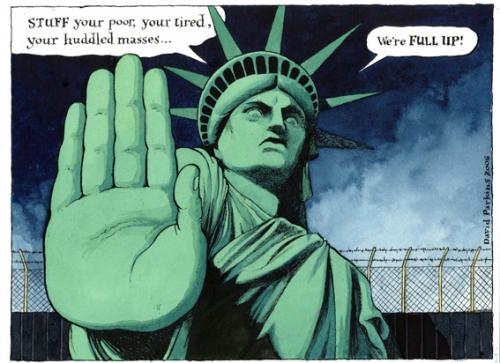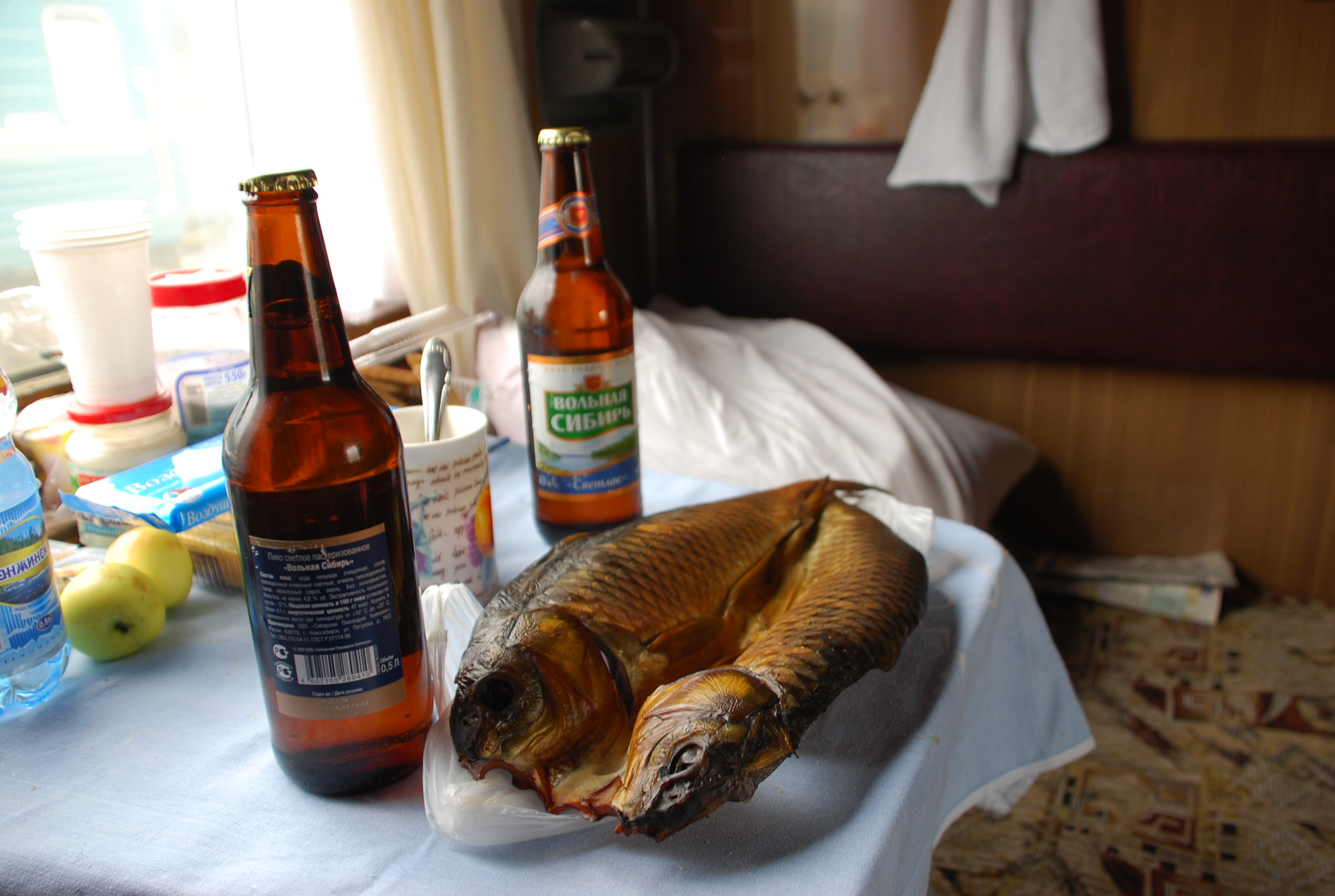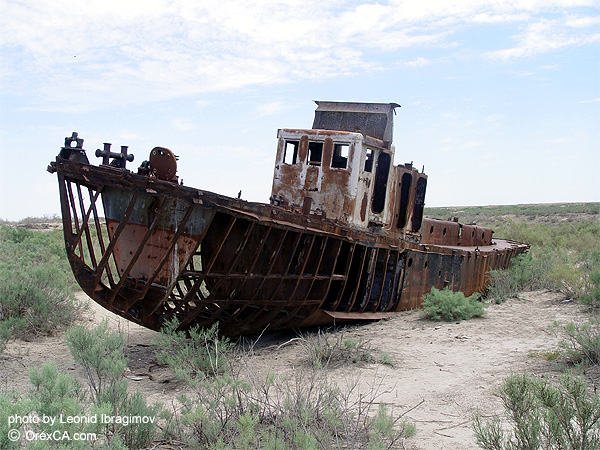 People always ask what it's like on a sleeper train in China or the 'stans, so here are some notes from my recent 32-hour odyssey
People always ask what it's like on a sleeper train in China or the 'stans, so here are some notes from my recent 32-hour odyssey.
I forgot the best part about Russian--or in this case, Kazakh--trains: the small horde of babushkas that descends on the train as it arrives in rural stations, laden with chilled drinks (fizzy water frozen half solid, warm beer, cold pop); armloads of smoked fish; savory doughnuts flecked with meat and onions or sweet ones unfilled; bags of tiny apples; Mason jars of wild strawberries, raspberries, sour cherries; little meat patties; etc. My only mistake was in not changing more than $5 at the last stop, though it bought me a beer there, a liter of frozen water and a generous pint of cherries here, with some leftover. The approach in China is totally different: you never leave the train, and what's for sale at stops differs little--may in fact be worse--than what's available on board. On Chinese trains everyone survives on pot noodles, green tea, or the prepackaged meals (cooked in dining car), fruit, and snacks sent around on trolleys. On Russian trains, at least this one, there's no dining car or trolley that I can see, and everyone gets off at every stop and grazes.
The dining car food (from trolleys) on Chinese trains is much like bad Chinese restaurant food in the US: greasy rice, soy sauce-drenched chicken, limp broccoli or green beans, a fried egg, a slice of processed ham, maybe a cucumber salad. Not bad for a train, but pretty feeble for the country with possibly the world's greatest food. My goal, which I've now achieved, has become never to eat rice in China--not that I don't like it, but b/c the noodles, dumplings, buns, and other sources of starch are so much more interesting, and rice is so easily avoided, esp. in the north and west. Even in the south, the Chinese do okay by rice, but nothing like the Iranians or Indians, say, who use jasmine or basmati or other inherently aromatic varieties, brought to their full glory with careful cooking (each grain distinct) and elegant mingling with hints of spice, nuts, veg. Already in Urumqi the transformation is evident as "polo," rice pilaf, becomes a dish unto itself, whereas elsewhere in China rice is more of a condiment or filler.
Despite admonitions from the LP, Man in Seat 61, etc., that it's very popular, booked out weeks in advance, the "Silk Road" train I'm on (Urumqi to Almaty) is in fact only six cars long, and a good half the kupes are empty or partially full--mine only has me and one Kazakh guy in a berth built for four. Even full, it would be quite a luxury compared to Chinese hard sleeper. It's interesting, though, that Chinese trains are more spartan but newer (squat toilets but twice as many, and clean; sinks outisde bathrooms; sparkling enameled steel hardware, iridescent panel night lights) while Kazakh trains (much like Russian but not perhaps as wide) are more ornate but older and shabbier (seated toilets but very dirty and half as many; fake wood paneling everywhere; old-school military-grade lights, towel racks, etc.)
Stopped for over an hour on Chinese side for very thorough Customs (made me turn on computer, and guy opened various windows; seemed acutely interested in books; made me unpack bag down to opening deoderant in toilet kit); 20-minute lope through no-man's-land, when toilet was finally open; over an hour on Kazakh side for much more casual Customs. Then, an hour later, we stopped for 2-3 hours (and disembarked) while they changed bogeys (Russian/former USSR tracks are wider than most others).
It occurs to me that trains only really become interesting after about sixteen hours, when the journey becomes more than just a long overnight. As time stretches into the afternoon of the second day, you start to forget your origin, or destination, or time, and slip into a very relaxed kind of suspended animation. Another way of putting it would be that 12-16 hours is what separates those who love trains from those who put up with them; luxury vs. necessity. It's impossible to be in a hurry on a train (either a good or bad thing, depending on your disposition, I suppose); most sleepers are set up to go much slower than they theoretically could (who wants to arrive at 3:30 am?). On the Urumqi-Almaty train, a good six hours was "wasted" with borders and bogeys, to say nothing of fifteen-minute stops every three hours or so, and a very leisurely pace when it was moving. That's what windows are for.









 Here's the url, since this got cut off: http://www.geographicguide.net/asia/maps/uzbekistan.jpg
Here's the url, since this got cut off: http://www.geographicguide.net/asia/maps/uzbekistan.jpg









